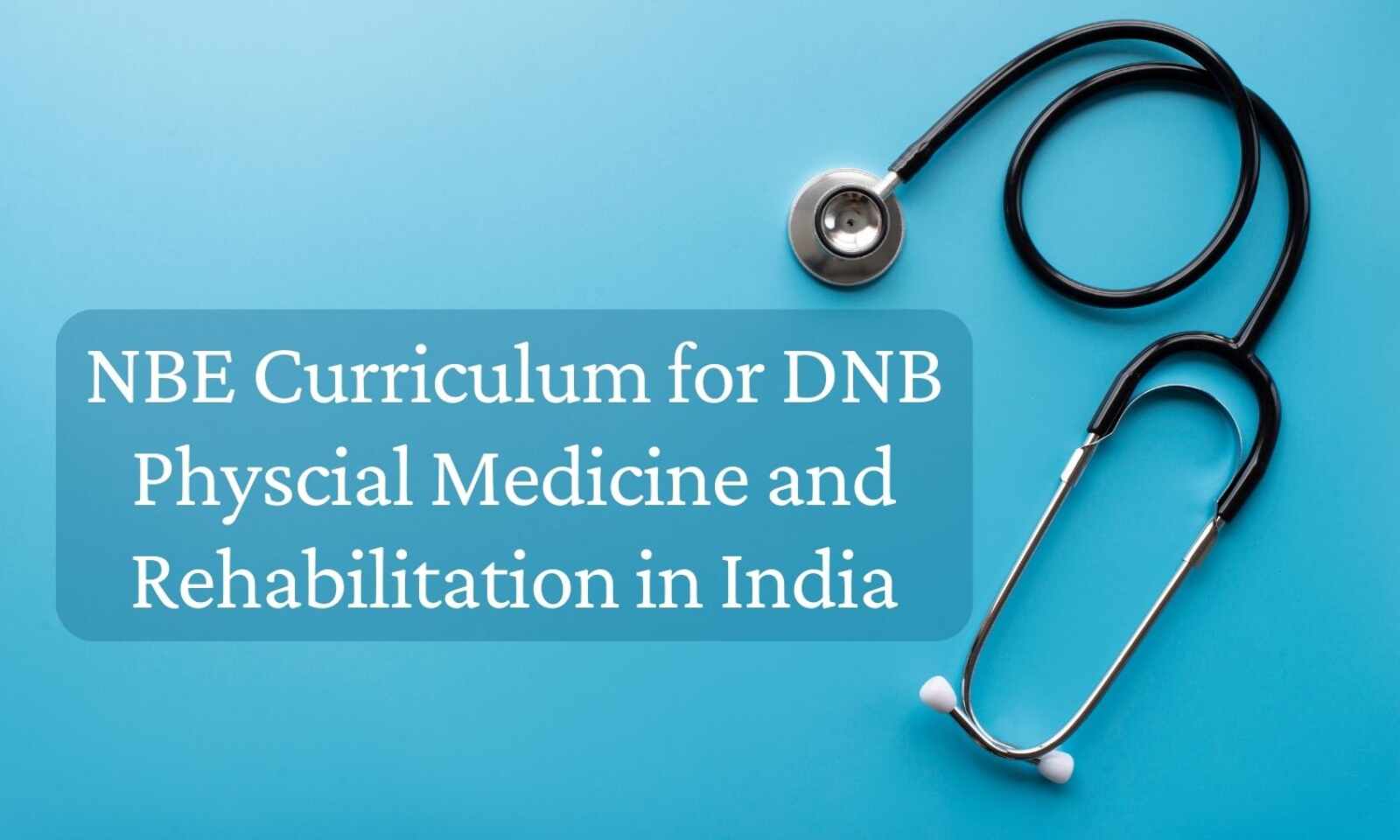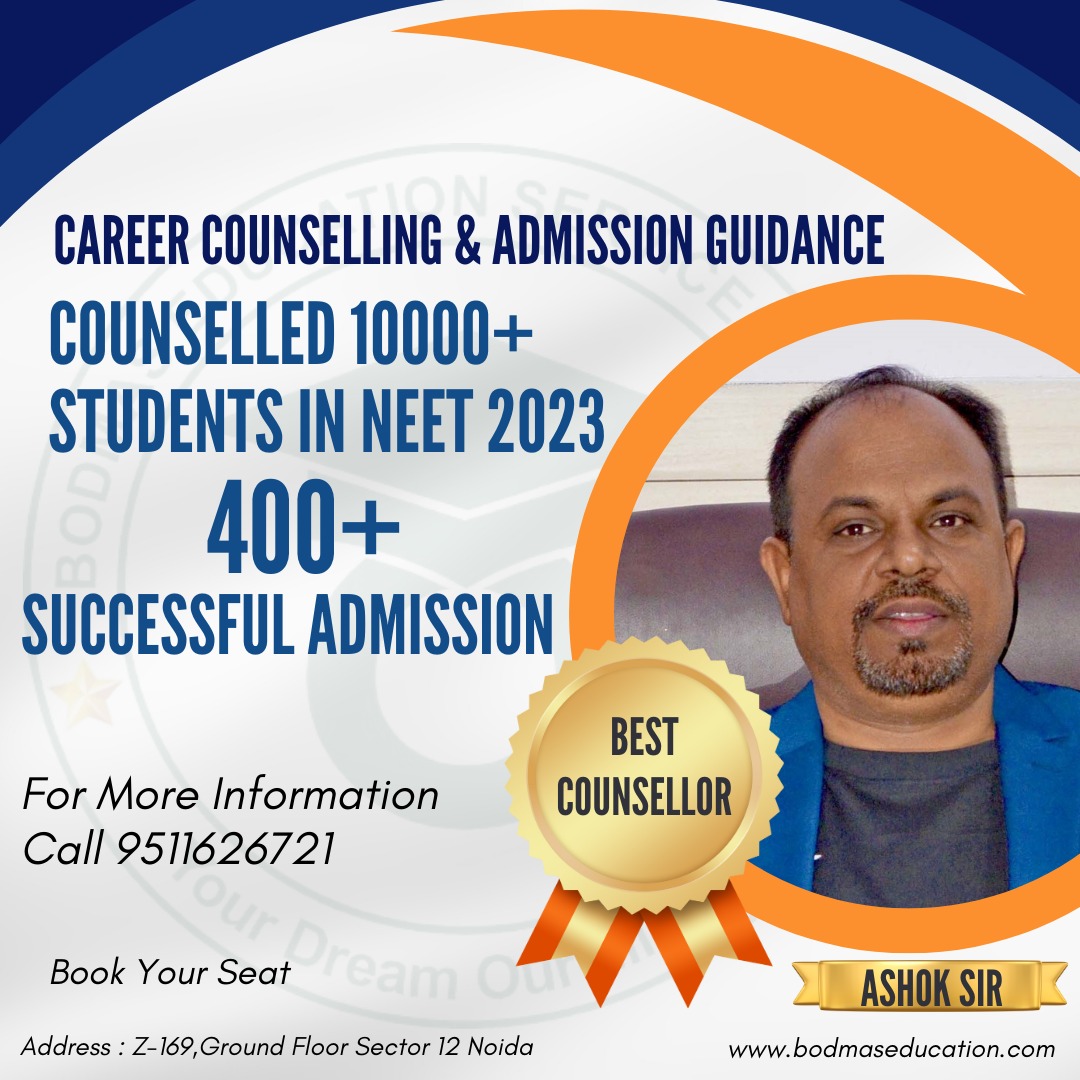DNB Post Diploma in Physical Medicine and Rehabilitation
India offers a two-year postgraduate programme called DNB Post Diploma in Physical Medicine and Rehabilitation (also known as DNB-PD in Physical Medicine and Rehabilitation). It is intended for medical professionals who have earned their Physical Medicine and Rehabilitation (PMR) diploma and want to enhance their specialization in this area.
The DNB-PD degree is granted following successful completion of the programme and is awarded by the National Board of Examinations (NBE) in India, which oversees the program’s administration. In the nation, the NBE is regarded as the leading authority on postgraduate medical education.
The DNB-PD program’s goal is to educate and create skilled professionals in the area of physical medicine and rehabilitation. The field of physical medicine and rehabilitation, commonly referred to as physiatry, focuses on the identification, treatment, and rehabilitation of people who have physical impairments, limits, or disabilities. It covers a broad spectrum of illnesses, such as musculoskeletal problems, neurological issues, spinal cord injuries, strokes, amputations, and chronic pain.
Students in the two-year programme receive thorough instruction in many facets of physical medicine and rehabilitation. Typically, the programme consists of academic and practical elements, clinical rotations at various healthcare facilities, practical training in conducting rehabilitation interventions, and research activities. In disciplines like physical therapy, occupational therapy, prosthetics and orthotics, pain management, electrodiagnostics, and therapeutic exercise, students gain knowledge and abilities.
Students must take a final test administered by the NBE to verify their completion of the programme. Successful candidates receive the DNB-PD degree, which is comparable to a master’s degree in Physical Medicine and Rehabilitation and is recognised by the Medical Council of India (MCI).
DNB-PD programme graduates have a variety of professional options in the public and private healthcare industries. They can serve as consultants or experts in clinics, hospitals, and rehabilitation facilities, offering complete care to people with impairments. They might also work in academia, research, or the formulation of public policy related to physical medicine and rehabilitation.
Overview of the Course
Name:
DNB Post Diploma in Physical Medicine and Rehabilitation Postgraduate
Level: PG
Duration : Two years
Minimum Academic Qualification:
Candidates who have passed the final examination leading to the award of Post Graduate Diploma from Indian Universities which are duly recognized as per provisions of the NMC Act 2019 and the repeated Indian Medical Council Act 1956, Govt of India can apply for the DNB-PDCET in the same Bresal speciality. The result of the final examination for the said Post Graduate Diploma qualification should have been declared on or before the prescribed cut-off date of a particular admission session Physical Medicine and Rehabilitation Candidates should have successfully completed Diploma in Physical Medicine and Rehabilitation (DPMR)
Admission Process / Entrance Process Entrance Modalities -Entrance Exam DNB-PDCET Counseling by NBEMS
Fees -Rs. 1,25,000 per year
Average Salary -Rs. 5,00,000 to Rs 32,00.000 per year
Application Process
- Candidates must take the DNB-PDCET ranking exam administered by the National Board of Examinations in Medical Sciences (NBEMS) in order to be admitted to the DNB-PD programme.
- Examinees’ knowledge and skill in the area of physical medicine and rehabilitation are evaluated. Candidates go through counselling for the distribution of Post Diploma DNB seats based on their test results.
- Candidates may select the hospital medical college or institution of their choice that is accredited by NBEMS, depending on availability and merit.
- The DNB-PDCET is a ranking test, and a specialty-based merit list will be created for every candidate who applied. There will be no minimal requirements for eligibility, either in terms of percentiles or percentages of exam marks.
- All students who take the DNB Post Diploma CET test will be ranked according to the marks they received in comparison to other applicants who applied for the same broad specialization.
- For each Broad specialization in which the Post Diploma CET examination is given, a separate merit will be created.
Eligibility Requirements
Candidates must have earned their postgraduate medical diploma from an accredited institution in order to be eligible for the DNB Post Diploma in Physical Medicine and Rehabilitation. They must have a solid background in the medical sciences and a strong passion for physical therapy and rehabilitation. Candidates must have a thorough awareness of the pathophysiology at the root of diseases affecting the neuromusculoskeletal, cardiovascular, and pulmonary systems.
- Candidates may apply for the DNB-PDCET 2023 in the same Broad Speciality if they have successfully completed the final examination leading to the award of a Post Graduate Diploma from an Indian university that is duly accredited in accordance with the NMC Act 2019 and the Indian Medical Council Act 1956, both of which have been abolished.
- The final exam result for the aforementioned Post Graduate Diploma certification was supposed to be released on or before the deadline.
- It is required for candidates to provide documentation or proof that the results of the last exam they took to get their postgraduate diploma were released on time or earlier.
- Candidates must provide documentary verification of their registration with the NMC, the former Medical Council of India, or the State Medical Council on the day of the exam and during admissions/counseling.
Course Length and Organisation
The DNB-PD programme lasts for two years. Candidates receive thorough instruction in the field of physical medicine and rehabilitation during this time. At reputable, accredited universities or hospitals around the nation, the course is pursued full-time. The curriculum combines theoretical knowledge with applied skills and clinical practice to prepare students to work as competent specialists in their respective fields.
Fees and Other Financial Factors
DNB-PD in Physical Medicine and Rehabilitation courses cost Rs. 1,25,000 a year. Candidates should think about the costs associated with taking the course, such as tuition, lodging, and living expenditures. Nevertheless, the programme offers bright employment prospects, enabling doctors to land respected jobs in both the public and commercial sectors.
Career Possibilities and Salary Levels
Doctors have a variety of job options available to them after completing the DNB-PD course. They can seek jobs in the government sector as Registrar, Senior Resident, Demonstrator, Tutor, and more. These positions offer security and the opportunity to give back to the community. Resident doctors, consultants, visiting consultants (physicians), junior consultants, senior consultants (physicians), and other choices are available to doctors in the private sector. Depending on characteristics including experience, qualifications, and the hiring organization, these positions give a compensation range of roughly Rs. 5,00,000 to Rs. 32,00,000 annually.
Opportunities for Promotion and Additional Study
Doctors have the choice to enter the employment market right away after completing the DNB-PD course. However, the course acts as a prerequisite for master’s degrees and research degree programmes approved by NEEMS or NMC for individuals who choose to pursue further education. Doctors can improve their specialization in their profession and advance medical knowledge through these higher degree programmes. The opportunity to conduct important research and make substantial contributions to the field of physical medicine and rehabilitation can be gained by pursuing advanced degrees.
College Offering the Course:
Swami Vivekanand National Institute of Rehabilitation Training and Rech Olatpar, PO Bairoi, District-Cuttack Orissa-754010 Orissa
Speciality: Physical Medicine and Rehabilitation Management Central Government Hospital Total No. of Seats: 1
DNB Post Diploma in Physical Medicine and Rehabilitation is a specialized postgraduate programme that gives medical professionals the knowledge and abilities they need to address the rehabilitation needs of people with physical disabilities, thereby promoting their functional independence and quality of life.










